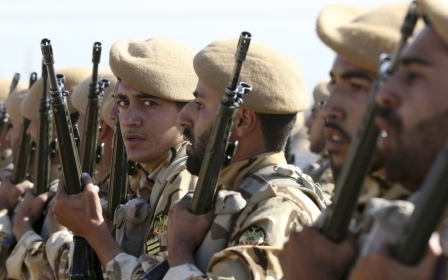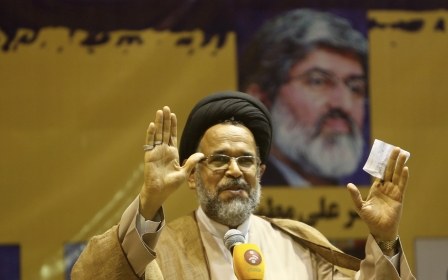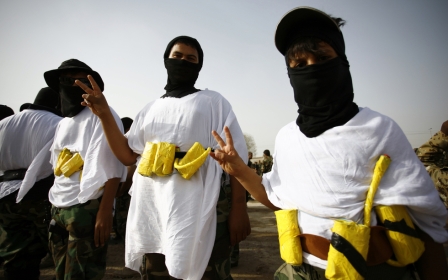Foiled plot in Iran was to target 50 busy centres with wave of bombings: Minister

Iran-based militants planned to carry out a wave of suicide operations and car bombings in busy urban centres, according to the country's intelligence minister.
Details of the planned attacks followed the arrest of 10 militants in relation to the bomb plot, Iran’s intelligence minister said in a statement reported by the semi-official Fars News Agency.
Iranian authorities have said they thwarted “one of the biggest terrorist plots” in a swoop last Monday, less than a week after another bomb plot was foiled.
Speaking at a press conference on Tuesday, Mahmoud Alavi said: “Operations to arrest terrorists began last Monday, 14 June, and ended yesterday, on Monday [21 June], when 10 Takfiri Wahhabi terrorists were apprehended in Tehran, three border provinces, and in the middle of the country.”
“Takfiri Wahhabi terrorists” is a common term used by authorities in Shia Iran for Sunni militant groups who it often claims are backed by regional rival Saudi Arabia and other Gulf states.
“The operations that the terrorists planned included planting bombs and carrying out the explosions by remote control devices,” Alavi said, adding that the militants were also planning to carry out suicide operations and car bombings in crowded centres.
Alavi also said that 100kg of explosive materials were in the possession of the suspects when they were arrested.
Murky fight
The news comes less than a week after Iran announced it had foiled another militant plot, this time by the Islamic State group, which was targeting Iran’s restive western region.
Iran, a Shia majority country, has made much of its contribution in the fight against Sunni militants across the region and frames its support of embattled Syrian President Bashar al-Assad in this light.
While Iran sees itself as in the forefront of the fight against Islamic State and other militant groups, its relationship with senior al-Qaeda figures is controversial, since it harboured some of the group's leaders who fled from Afghanistan following the September 11 attacks on the US.
Naame Shaam, an NGO focusing on Iran’s role in Syria, produced a 105-page report in 2014 claiming that al-Qaeda and IS were under orders not to attack Iran in order to preserve their supply networks – an accusation supported by the US government, according to The Daily Beast news website.
Last Wednesday, clashes between Iranian government forces and the Kurdish secessionists led to 15 deaths in northwest Iran.
Three of those killed were from Iran’s elite Revolutionary Guards, the remaining 12 from the Iranian-Kurdish PJAK movement, which the Iranian government considers to be a terrorist organisation.
Last May, Alavi announced that 20 militant groups planning attacks across the country had been dismantled, according to the semi-official Press TV.
Middle East Eye propose une couverture et une analyse indépendantes et incomparables du Moyen-Orient, de l’Afrique du Nord et d’autres régions du monde. Pour en savoir plus sur la reprise de ce contenu et les frais qui s’appliquent, veuillez remplir ce formulaire [en anglais]. Pour en savoir plus sur MEE, cliquez ici [en anglais].




